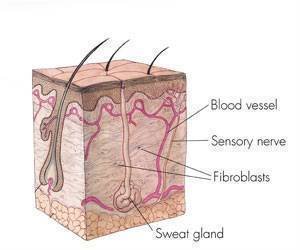Selective Skin-Resident Cells Enhance Immunity at Birth

In the womb, a mother’s defenses protect a fetus against bacteria. At birth, the skin and other tissues such as the gut are exposed to commensal bacteria. These are harmless bacteria that are beneficial by keeping any disease-causing bacteria in check.
The skin-homing cells are called invariant killer T (iNKT) cells. These immune cells emanate from and are programmed in an organ called the
. In humans, this organ is located between the lungs.
The iNKT cells cooperate with the commensal bacteria to preserve skin health and act as a barrier for the body against bacterial pathogens.
Researchers have found that if the iNKT cells do not properly go to the skin, or if there is no such population in the skin, there will be dysregulation of commensal bacteria in the skin and the bacterial composition will be changed. This can result in not enough friendly bacteria being present, enabling potentially pathogenic bacteria to overgrow.
Advertisement
In a second important finding, the researchers observed that the skin-homing iNKT cells help promote hair follicle development. The cells situate preferentially around follicles and are not the only ones present there. These findings are published in the journal Nature Immunology.
Within the hair follicle, there are also a lot of commensal bacteria. It is one place they like to stay. The follicles themselves are critical sites of immune defense.
These cells have a different homing property than other T cells. Now, researchers have identified the mechanism through which this homing activity occurs. Localization of these T cells to the skin is not only important at birth but also for lifelong Immunity.
Source: Eurekalert
Source link
#Selective #SkinResident #Cells #Enhance #Immunity #Birth



